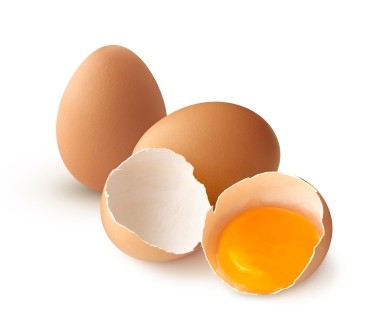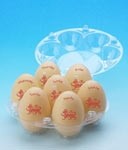New egg replacer could overcome labelling challenges
Adrian Short, director of the clean label ingredients manufacturer, said that its egg replacer, Ovaparox, is produced from wheat fractions in combination with proteins that the supplier had previously used in products targeted at the meat sector.
“The way in which the wheat-based egg substitute is formed allows us to call it wheat flour, and this, of course, means there are no labelling implications as this ingredient is already declared on baked goods,” he said.
Ovaparox, continued Short, has a shelf life of 18 months from date of manufacturer and allows bakers, therefore, to hedge their bets against fluctuating egg prices: “They can keep the substitute in storage and simply switch to it in times of sharp increases in the cost of that commodity,” he explained.
Ovaparox can replace up to 50 per cent of egg in cakes without compromising on quality, taste, bake volume or shelf-life, said the supplier.
The product is sold in powder form, which is then combined with water to produce the equivalent of liquid egg but this does not impact on shelf life, claims Short, as Ovaparox wraps and binds the water.
Testing
He told BakeryandSnacks.com that texture and water characteristics of sponges using the egg replacer were independently tested by technologists based at Sheffield Halham University, with their results showing the end products had properties equivalent to those based on 100 per cent egg based recipes.
Furthermore, said Short, trials with the supplier’s lead bakery customers based in the UK, Holland and Belgium demonstrated that the egg replacer works on an industrial scale with one manufacturer declaring it to be easier to use than egg in some recipes.
He said that that Ovaparox can achieve savings of up to 30 per cent for bakery processors.
Egg supply
Egg prices have been going up for about 12 months with increases on intensive liquid egg in the order of 10 per cent.
And food manufacturers are predicting further price hikes and availability worries as European egg producers struggle to get to grips with changing welfare legislation, with new rules banning the use of traditional battery cages to produce eggs, scheduled to come into force in January 2012.
European Egg Processors’ Association (EEPA) secretary general Filiep Van Bosstraeten told our sister publication Food Manufacturer that it would probably take several years for European egg farmers to make the necessary investments to meet the new welfare rules given the difficulty of accessing finance in the current economic climate: “Finance is not easily available to egg farmers and this is slowing down action in many countries.”
He added: “Our members are facing significant difficulties in sourcing eggs for processing. Our industry uses 25-30 per cent of total EU egg production to supply the food industry with high-quality egg products needed as ingredients for a wide range of food products."
The problem was being further exacerbated by increased imports from Germany, where the welfare legislation came into force earlier this year, he said: “In Germany, they imposed this regulation in 2010 and this has resulted in about 20% less production. Germany was already the largest importer of eggs in the EU and its demand for imports is now much higher.”









